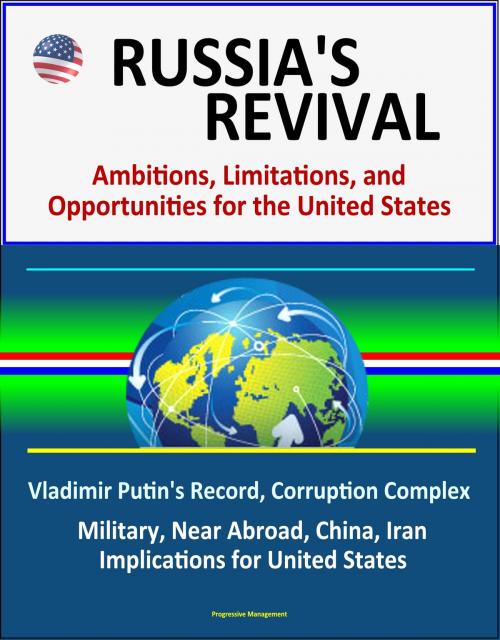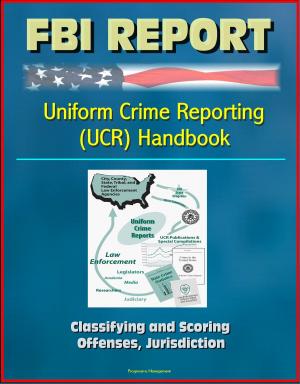Russia's Revival: Ambitions, Limitations, and Opportunities for the United States - Vladimir Putin's Record, Corruption Complex, Military, Near Abroad, China, Iran, Implications for United States
Nonfiction, History, Asian, Former Soviet Republics| Author: | Progressive Management | ISBN: | 9781311239891 |
| Publisher: | Progressive Management | Publication: | May 20, 2016 |
| Imprint: | Smashwords Edition | Language: | English |
| Author: | Progressive Management |
| ISBN: | 9781311239891 |
| Publisher: | Progressive Management |
| Publication: | May 20, 2016 |
| Imprint: | Smashwords Edition |
| Language: | English |
This excellent report has been professionally converted for accurate flowing-text e-book format reproduction. Independent Russia is approaching the start of its third decade of post-Soviet existence. After the economic chaos of the Boris Yeltsin decade and the recovery and stabilization of the Vladimir Putin decade, Russia's leaders have high ambitions for a return to great power status in the years ahead. Their aspirations are tempered, however, by the realities of Russia's social, economic, and military shortcomings and vulnerabilities, laid painfully bare by the stress test of the recent global financial crisis. Looking ahead, some also calculate that Russia will be increasingly challenged in the Far East by a rising China and in the Middle East by an Iran that aspires to regional hegemony.
With energy riches abundant enough to compensate for a multitude of governance and managerial shortcomings, the Russian economy will likely continue to grow in absolute terms in the years ahead. Indeed, if Russia wants to remain a mediocre power, it can do so without effort by not changing its current behavior patterns. But with growing corruption, business-stifling political controls, and dependency on raw materials exports retarding the full potential of Russia's growth, the country is facing the prospect of decades of decline relative to other more dynamic regional and world powers. Russia will retain its nuclear weapons and permanent veto-empowered seat in the United Nations Security Council. But Russia will likely slip on many of the measures commonly used to assess great power status: size and vitality of its population, growth and vibrancy of its economy, and the ability of its armed forces to project conventional military power beyond its own borders. Russia will continue to be the preponderant influence across a large swath of former Soviet territory, but not beyond it.
This excellent report has been professionally converted for accurate flowing-text e-book format reproduction. Independent Russia is approaching the start of its third decade of post-Soviet existence. After the economic chaos of the Boris Yeltsin decade and the recovery and stabilization of the Vladimir Putin decade, Russia's leaders have high ambitions for a return to great power status in the years ahead. Their aspirations are tempered, however, by the realities of Russia's social, economic, and military shortcomings and vulnerabilities, laid painfully bare by the stress test of the recent global financial crisis. Looking ahead, some also calculate that Russia will be increasingly challenged in the Far East by a rising China and in the Middle East by an Iran that aspires to regional hegemony.
With energy riches abundant enough to compensate for a multitude of governance and managerial shortcomings, the Russian economy will likely continue to grow in absolute terms in the years ahead. Indeed, if Russia wants to remain a mediocre power, it can do so without effort by not changing its current behavior patterns. But with growing corruption, business-stifling political controls, and dependency on raw materials exports retarding the full potential of Russia's growth, the country is facing the prospect of decades of decline relative to other more dynamic regional and world powers. Russia will retain its nuclear weapons and permanent veto-empowered seat in the United Nations Security Council. But Russia will likely slip on many of the measures commonly used to assess great power status: size and vitality of its population, growth and vibrancy of its economy, and the ability of its armed forces to project conventional military power beyond its own borders. Russia will continue to be the preponderant influence across a large swath of former Soviet territory, but not beyond it.















